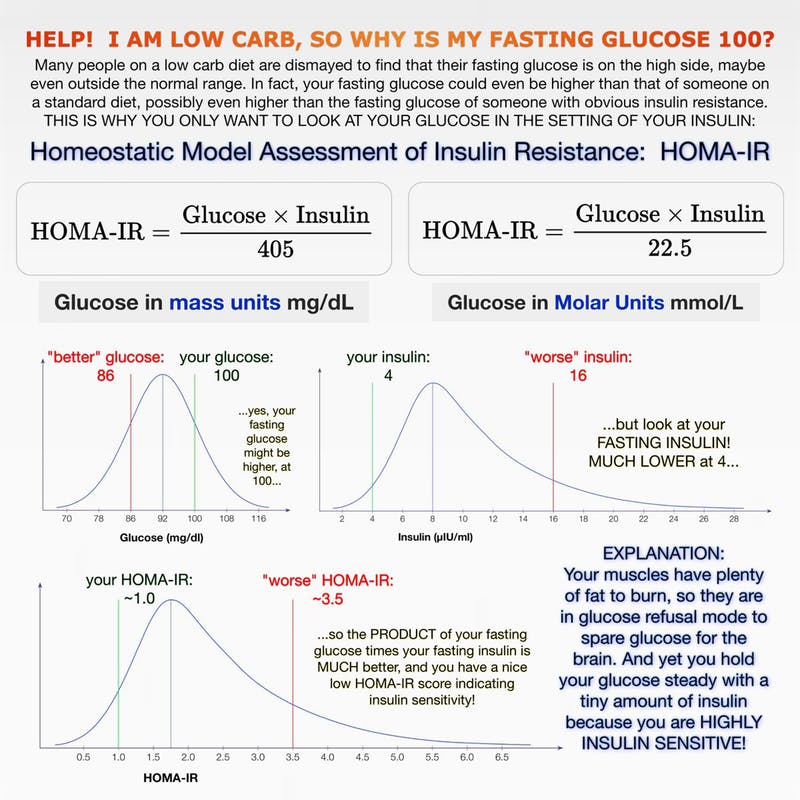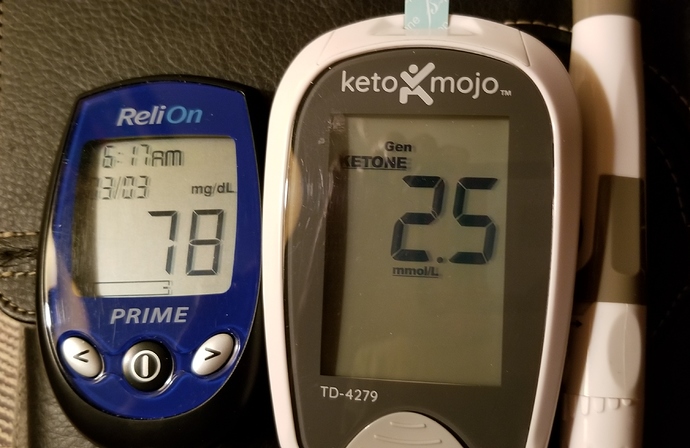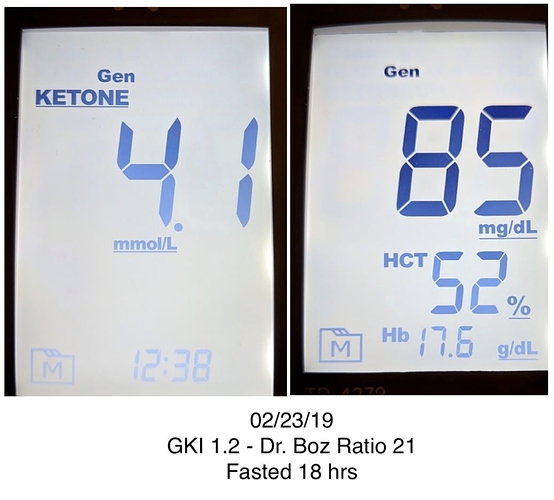I always wished there was a way to KNOW if I ever was in a state of autophagy and it seemed like there was no way to measure it. The general consensus among respected sources seemed to say it would be safe to guess that water/salt fasting for a number of hours would start autophagy which would peak in about 3 days but there wasn’t a way to check or to be sure. At least that was my take away.
Watching this Dr Boz Youtube today beginning at about 22.00, https://www.youtube.com/watch?v=KXoa6dDVEyc&t=1546s She fairly confidently gives a way to estimate if your level of intensity of fasting was intense enough to reach certain levels of autophagy: by taking blood sugar and blood ketone levels, taking the results and dividing blood sugar level by ketone levels to get a ratio. For weight loss, the ratio should be between 70 to 100. If the goal is for autoimmune, the ratio should be 50-70. For cancer patients in order to stress cancer cells, the ratio should be less than 20 and should ONLY be attempted with a Doctor present.
I am fat adapted and after 17.5 hours of water fasting, my BS was 91 and my BK was 1.4 giving me a ratio of 65 which may have put me in the range of doing my autoimmune disease (exhibited in arthritis) some good. I’d feel more confident if the source was someone like Valter Longo at USC Davis, Ana Maria Cuervo at Albert Einstein College or Medicine or Thomas Seyfried at Boston College.
I did find this NIH article with Thomas Seyfried https://www.ncbi.nlm.nih.gov/pmc/articles/PMC4367849/ that states:
“Methods
A program was developed (Glucose Ketone Index Calculator, GKIC) that tracks the ratio of blood glucose to ketones as a single value. We have termed this ratio the Glucose Ketone Index (GKI)…
Results
The GKIC was used to compute the GKI for data published on blood glucose and ketone levels in humans and mice with brain tumors. The results showed a clear relationship between the GKI and therapeutic efficacy using ketogenic diets and calorie restriction.”
Did everyone else know and understand this except me??? It sure motivates me to build my “water fasting muscle” and FMD trials and do more of it.
I’d love others to check out the video, share their thoughts and check my understanding. If this is all for real, I’m thrilled to be able to get a sense of whether I have any autophagy going on and if so, at what therapeutic range. If I have arrived late to this party and everyone already knows about this, a simple “Yes, Virginia, there is a Santa Claus” will be fine! Thanks!




